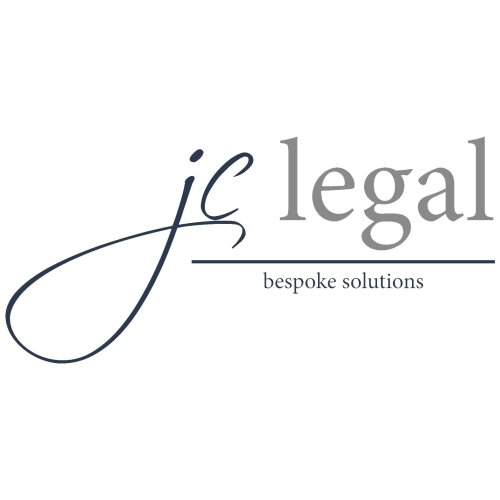Best Inheritance Law Lawyers in Sheung Wan
Share your needs with us, get contacted by law firms.
Free. Takes 2 min.
List of the best lawyers in Sheung Wan, Hong Kong
1. About Inheritance Law in Sheung Wan, Hong Kong
Inheritance law in Hong Kong governs how a deceased person’s estate is distributed. In Sheung Wan, as in the rest of Hong Kong, these rules are applied under a civil law framework with strong common law influences. The main pathways are through a valid will or through intestacy rules if no will exists.
The High Court’s Probate Registry handles probate and letters of administration. If you are named as an executor, you may need to apply for probate to collect assets and manage the estate. If there is no valid will, the estate is distributed according to intestacy rules set out in statute. Cross-border assets add complexity, as property in Mainland China or overseas may require separate steps and coordination with foreign jurisdictions.
Working with a solicitor or legal counsel can clarify which process applies to your situation, estimate timelines, and help you prepare the required documents. In Sheung Wan, many families also navigate real estate held in Hong Kong, which may require additional considerations under property laws and co-ownership arrangements. This guide outlines practical steps, common questions, and local resources to help residents in Sheung Wan engage the right professional help.
2. Why You May Need a Lawyer
Below are concrete scenarios where Inheritance Law advice is essential in Sheung Wan. Each example reflects issues residents commonly face in the district.
- You are the named executor in a will and must apply for probate to access the deceased’s bank accounts and property in Hong Kong.
- You are a widow or child of the deceased and want to understand your entitlement under intestacy or challenge a will you believe was improperly executed or obtained.
- You suspect a will was created while the testator lacked capacity or was unduly influenced, and you need to assess grounds for a potential challenge.
- You hold assets in Mainland China or abroad and must coordinate probate or administration across jurisdictions, including cross-border tax issues and asset transfer.
- You are facing competing claims from multiple family members, or you suspect an invalid will or misappropriation of assets, requiring dispute resolution or litigation in court.
- You want to set up a trust or a structured arrangement to manage inheritance for minors or dependents, avoiding future disputes.
Engaging a solicitor in Sheung Wan helps ensure correct filings, reduces delay, and provides guidance on documentation such as death certificates, original wills, affidavits, and asset schedules. A qualified lawyer can also explain the roles of executors, administrators, and beneficiaries, and assist with cost budgeting for probate or administration work.
3. Local Laws Overview
Hong Kong inheritance matters are primarily governed by statutory provisions and case law. Understanding the key statutes helps you identify which process applies to your situation in Sheung Wan.
- Wills Ordinance (Cap. 30) - Governs the creation and validity of wills, and related formalities. It sets out requirements for execution, witnessing, and the effect of a properly executed will on asset distribution.
- Probates and Administrations Ordinance (Cap. 10) - Regulates the process by which a will is proved and an executor obtains a grant of probate; or, in intestacy cases, letters of administration are issued to distribute the estate.
- Intestates' Estates Ordinance (Cap. 153) - Provides the statutory scheme for distributing the estate when there is no valid will, including the order of entitlement among surviving spouses and relatives.
- Estate Duty Ordinance (now repealed in 2006) - Historically imposed estate taxes on certain assets; not applicable today, as estate duties were repealed with effect from 2006. This is a point of historical context for planning, not a current tax liability.
According to the Hong Kong Judiciary and official guidance, probate and administration matters are handled by the Probate Registry within the High Court. https://www.judiciary.hk
The Department of Justice provides guidance on wills and probate processes, including how to initiate probate or letters of administration and what documents are typically required. https://www.doj.gov.hk
These sources reflect the standard framework that applies to residents of Sheung Wan when dealing with wills, intestacy, and probate procedures. For context on population trends and property considerations in Hong Kong, the Census and Statistics Department offers official data that can inform estate planning agendas.
4. Frequently Asked Questions
What is probate and why is it needed?
Probate is the court validation of a will. It confirms the executor’s authority to administer the estate and transfer assets to beneficiaries.
How do I apply for probate in Sheung Wan?
Applications are filed with the High Court via the Probate Registry. You typically need the original will, death certificate, and an asset schedule.
When does a will become effective in Hong Kong?
A validly executed will becomes effective upon the testator’s death, at which point the executor can seek probate to administer the estate.
Where do I file for letters of administration if there is no will?
Letters of administration are sought from the High Court’s Probate Registry when there is no valid will.
Why might a will be challenged in Sheung Wan?
Common grounds include lack of testamentary capacity, undue influence, coercion, or improper execution of the will.
Can I contest a will on grounds of undue influence or lack of capacity?
Yes. You can pursue a challenge through court action. A solicitor can advise on the likelihood of success and necessary evidence.
Should I appoint a professional executor or rely on a family member?
Professional executors or trustees provide objectivity and experience with probate. They can help reduce delays and disputes.
Do I need a Hong Kong solicitor for probate?
While not strictly mandatory, most estates benefit from local solicitor guidance to navigate HK procedures, forms, and timelines.
How long does the probate process take in Hong Kong?
Timelines vary by complexity, but straightforward cases typically take 6-12 months, with longer durations for disputes or complex assets.
How much does probate cost in Hong Kong?
Costs include court fees, legal fees, and potential expert fees. A solicitor can provide a clear estimate after reviewing your case.
What happens to cross-border or Mainland China assets?
Assets outside Hong Kong often require separate probate or administration steps in the relevant jurisdiction, with coordination between lawyers.
Is there a difference between a will and an intestacy outcome in Sheung Wan?
Yes. A will directs asset distribution as specified by the testator, while intestacy follows statutory rules that determine beneficiaries and shares.
5. Additional Resources
Access to authoritative sources helps you understand the process and locate qualified professionals in Sheung Wan.
- - Official guidance on wills, probate, and administration processes, forms, and contact information for inquiries. https://www.doj.gov.hk
- - Probate Registry information and court procedures related to probate, letters of administration, and will validation. https://www.judiciary.hk
- - Directory of solicitors and firms, practice guidelines, and resources for will drafting and probate matters. https://www.hklawsoc.org.hk
These resources provide official guidance and practical steps for residents dealing with wills, probate, and intestacy in Hong Kong. https://www.censtatd.gov.hk
6. Next Steps
- Clarify your objective and gather key documents. Gather the death certificate, original will (if any), asset schedule, and lists of creditors and debts within 2 weeks.
- Identify the appropriate proceeding. If there is a will, plan probate; if not, plan for letters of administration within 2-4 weeks after collection of documents.
- Consult 2-3 local solicitors in Sheung Wan. Ask about experience with wills, probate, intestacy, and cross-border asset issues. Schedule initial meetings within 2-3 weeks.
- Request a written engagement proposal. Compare fees, estimated timelines, and scope of work for probate or administration and potential disputes.
- Prepare your documents for filing. Have your solicitor prepare the petition, affidavits, and asset schedules; ensure originals are available for submission.
- Submit the application and monitor progress. Follow up with the Probate Registry and respond promptly to requests for additional information.
- Review outcomes and plan enforcement or distribution. Once grants are issued, your solicitor will guide asset transfer, debt settlement, and beneficiary distributions.
Lawzana helps you find the best lawyers and law firms in Sheung Wan through a curated and pre-screened list of qualified legal professionals. Our platform offers rankings and detailed profiles of attorneys and law firms, allowing you to compare based on practice areas, including Inheritance Law, experience, and client feedback.
Each profile includes a description of the firm's areas of practice, client reviews, team members and partners, year of establishment, spoken languages, office locations, contact information, social media presence, and any published articles or resources. Most firms on our platform speak English and are experienced in both local and international legal matters.
Get a quote from top-rated law firms in Sheung Wan, Hong Kong — quickly, securely, and without unnecessary hassle.
Disclaimer:
The information provided on this page is for general informational purposes only and does not constitute legal advice. While we strive to ensure the accuracy and relevance of the content, legal information may change over time, and interpretations of the law can vary. You should always consult with a qualified legal professional for advice specific to your situation.
We disclaim all liability for actions taken or not taken based on the content of this page. If you believe any information is incorrect or outdated, please contact us, and we will review and update it where appropriate.









